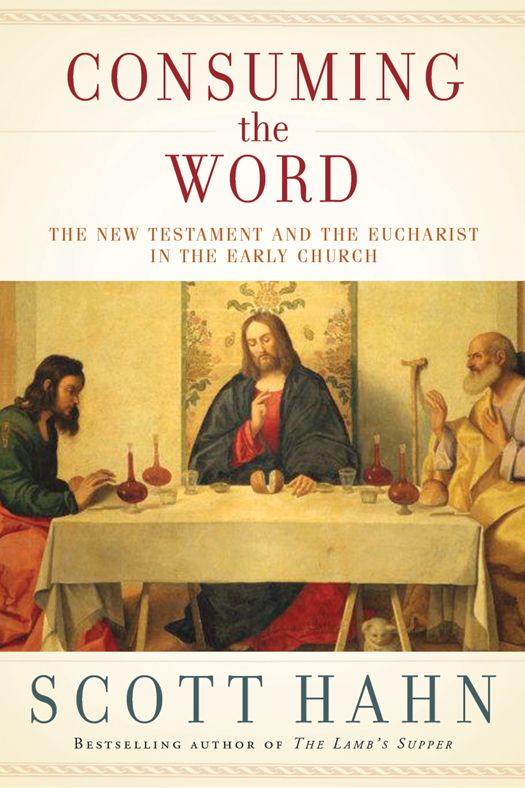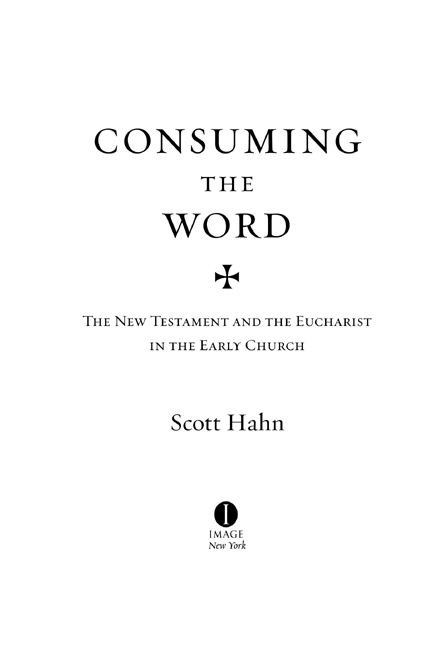Praise for Consuming the Word
In his latest book, Scott Hahn takes lessons from the Early Church to reveal the New Testament in a whole new light. Consuming the Word is essential reading for Catholics who want to better understand how the sacred authors and apostles affect us today.
Matthew Kelly, author of Rediscover Catholicism
Consuming the Word will increase your appetite for God and draw you into divine intimacy. Dr. Hahn brings clarity to the term New Testament as he moves us from text to action, from page to passion. Disciples of Christ have been called not to a text but to a covenant. The invitation to anyone studying the bible is to go deeper, to go beyond study to worship, to go beyond the words to the Word made flesh. For those who grasp the message of this book, their understanding of the Eucharistic sacrifice will never be the same.
Jeff Cavins, author of My Life on the Rock
Catholic scholars may debate certain details about how to understand Scripture, dogma, and liturgy, but all can agree that these three realities inseparably illuminate each other. Scott Hahn powerfully articulates these connections and their consequences for the love relationship into which the God of Love calls us.
Matthew Levering, professor of theology, University of Dayton
Consuming the Word reflects the strong connection between the authority of the scriptures and the authority of the Church. It will challenge anyone who gives it a fair hearing.
John Michael Talbot, author of The World Is My Cloister
OTHER BOOKS BY SCOTT HAHN
The Lambs Supper: The Mass as Heaven on Earth
Hail, Holy Queen: The Mother of God in the Word of God
First Comes Love: Finding Your Family in the Church and the Trinity
Lord, Have Mercy: The Healing Power of Confession
Swear to God: The Promise and Power of the Sacraments
Letter and Spirit: From Written Text to Living Word in the Liturgy
Reasons to Believe: How to Understand, Explain, and Defend the Catholic Faith
Ordinary Work, Extraordinary Grace: My Spiritual Journey in Opus Dei
Signs of Life: 40 Catholic Customs and Their Biblical Roots
Many Are Called: Rediscovering the Glory of the Priesthood
Catholic Bible Dictionary, General Editor
Understanding the Scriptures: A Complete Course on Bible Study
Understanding Our Father: Biblical Reflections on the Lords Prayer
A Father Who Keeps His Promise: Gods Covenant Love in Scripture
Covenant and Communion: The Biblical Theology of Pope Benedict XVI
Kinship by Covenant: A Canonical Approach to the Fulfillment of Gods Saving Promises
The Kingdom of God as Liturgical Empire: A Theological Commentary on 12 Chronicles
Scripture Matters: Reading the Bible from the Heart of the Church
Spirit and Life: Interpreting the Bible in Ordinary Time
Rome Sweet Home: Our Journey to Catholicism (with Kimberly Hahn)
Living the Mysteries: A Guide for Unfinished Christians (with Mike Aquilina)
Politicizing the Bible: The Roots of Historical Criticism and the Secularization of Scripture (13001700) (with Ben Wiker)
Copyright 2013 by Scott Hahn
Excerpt from The Fourth Cup copyright 2018 by Scott Hahn
All rights reserved.
Nihil Obstat: Reverend James Dunfee, Censor Librorum
Imprimatur: Most Reverend Jeffery Monforton, Bishop of Steubenville
The nihil obstat and imprimatur are official declarations that a book or pamphlet is free of doctrinal error. No implication is contained therein that those who have granted the nihil obstat and imprimatur agree with the contents, opinions, or statements expressed.
Published in the United States by Image, an imprint of the Crown Publishing Group, a division of Random House, Inc., New York.
www.crownpublishing.com
IMAGE is a registered trademark, and the I colophon is a trademark of Random House, Inc.
Library of Congress Cataloging-in-Publication Data is available upon request.
eISBN: 978-0-307-59082-4
Jacket design by Laura Duffy
Jacket photography Art Resource
v3.1_r2
To Timothy Cardinal Dolan, good shepherd
and pioneer of the New Evangelization
CONTENTS
FOREWORD
by Donald Cardinal Wuerl, Archbishop of Washington
Those who have been baptized into new life in Christ are also called to evangelize. Pope Paul VI reminded us that the Church exists to evangelize, and so Catholics cannot find fulfillment if they are not witnessing to the truth. More recent popes have called this task the New Evangelization.
The New Evangelization is not a program. It is a mode of thinking, seeing, and acting. It is a lens through which we see the opportunities to proclaim the Gospel anew. It is the work of the Holy Spirit active in the Church.
The continuation of the mission of Christ, which began with the Great Commissioning following his death and Resurrection, is what we are engaged in today. The Acts of the Apostles tells us that as Jesus prepared to return to his Father in glory, he charged his disciples, You will be my witnesses (Acts 1:8). That same challenge echoes in our ears and hearts todaywe are the witnesses to Jesus Christ, his message, his way of life, his triumph over death, and his pledge of new life to all who would walk with him.
It is the task of the New Evangelization to bring the Word of God to the world. The Word of God is not a book. It is a divine person (see John 1:1). In Jesus, God has spoken and revealed himself. We receive that revelation, in its fullness, in the Scriptures and the sacred tradition preserved and announced by the Church.
Our proclamation is focused on Jesus, his Gospel, and his way. Christian life is defined by an encounter with Jesus. When our Lord first came among us, he offered a whole new way of living. The excitement spread as Gods Son, who is also one of us, announced the coming of the kingdom. The invitation to discipleship and a place in the kingdom that he held out to those who heard him, he continues to offer today. This has been true for twenty centuries. As his message was more fully understood, it became evident that Jesus offers us not a new way of living but also a whole way of being.
The Church is the voice that transmits the Word to the world. Like John the Baptist, the Church cries in the wilderness that the Messiah has come. The New Evangelization calls us to render that voice intelligible to our age. The Word never changes, but the voice must be clear and relevant. The tone must be alive and enthusiastic. Our witness must be heard in the places where our people are.
In the Sermon on the Mount, Jesus addresses those who hunger and thirst for righteousness. Jesuss disciples are challenged to envision not only a world where the hungry are fed and the thirsty given drink, the stranger is welcomed and the naked are clothed, but also, and most amazingly, a world where sins are forgiven and eternal life is pledged.
That same vision is held out for us today when we open the pages of the Gospel and read about the invitation for us to eat the bread of everlasting life and to hear the words of truth, words that endure forever.
God is calling his Church to renew her efforts for the salvation of all. Just a few years ago I joined my brother bishops in Rome for a synod on the Word of God in the life and mission of the Church. Soon afterward we gathered again for a synod on the New Evangelization. The Church is seeking and finding creative ways of sharing the words of eternal life (John 6:69).


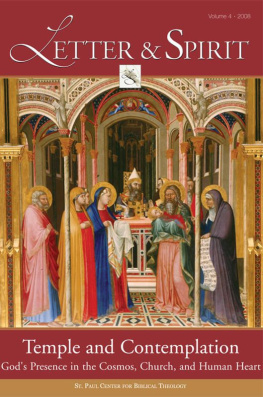
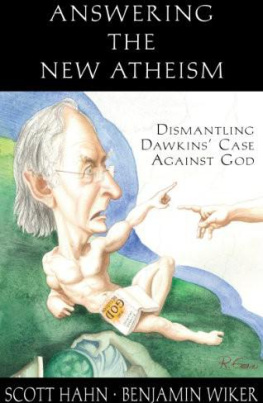
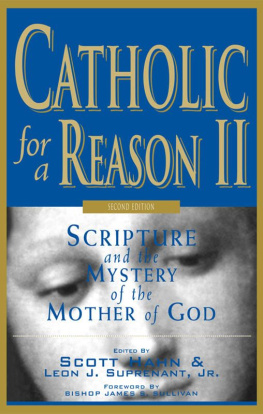
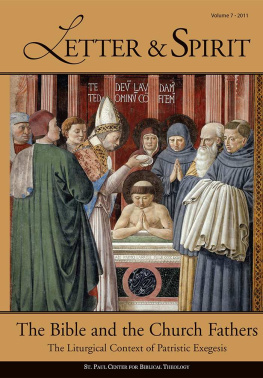
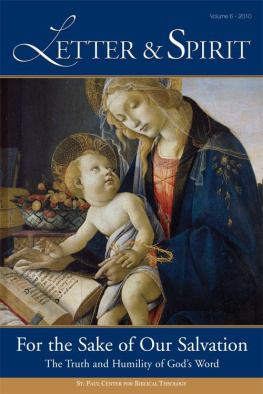
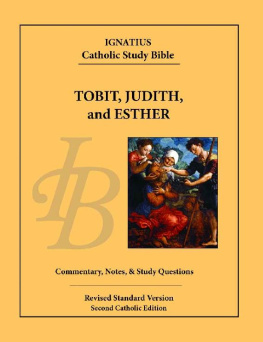
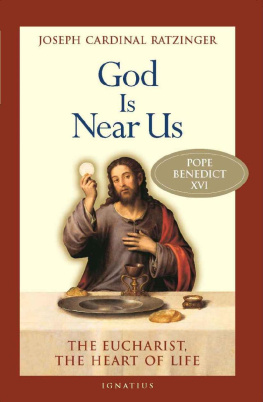
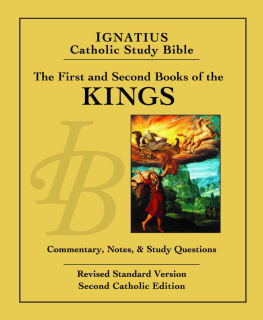
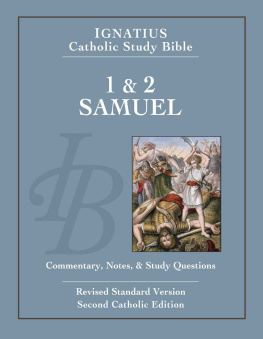
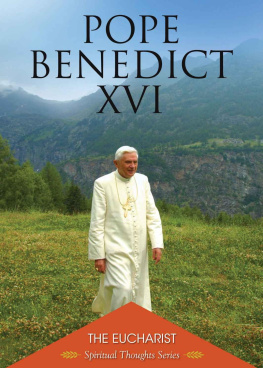
![Scott Hahn [Inconnu(e)] - Letter and Spirit: From Written Text to Living Word in the Liturgy](/uploads/posts/book/134755/thumbs/scott-hahn-inconnu-e-letter-and-spirit-from.jpg)
